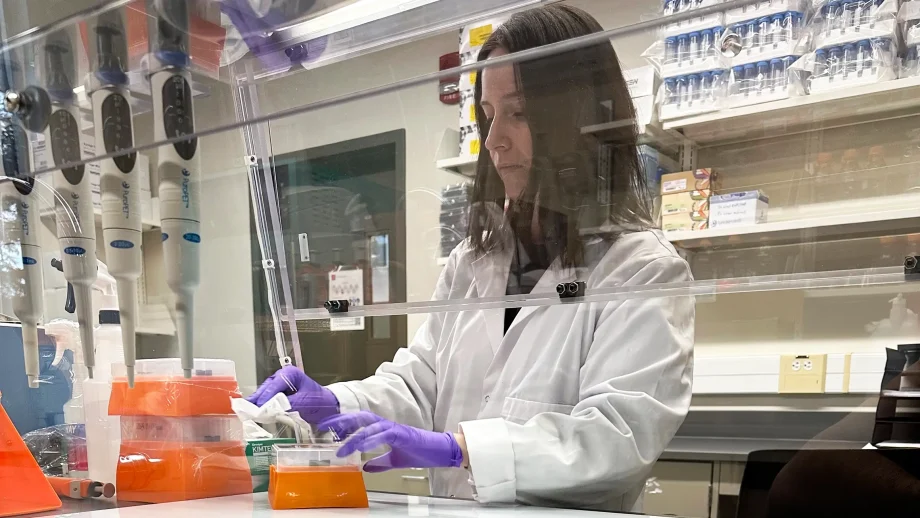UWinnipeg physicist, Dr. Jeffery Martin, is part of an international group of researchers, including collaborators at TRIUMF and CERN*, that have published a paper in Physical Review Accelerators and Beams. The article, Fast-switching magnet serving a spallation-driven ultracold neutron source is about a special “kicker” magnet that they designed, built, and used at TRIUMF. The article was selected as an “Editors’ Suggestion” and was an October 2019 feature by the journal.
“The unique thing that we did was to create an electromagnet and power supply that switches on incredibly fast,” explains Martin. “The current in the magnet goes from zero to 200 Amps in 50 millionths of a second.”
The magnet is the key enabling technology for the TUCAN (TRIUMF Ultra-Cold Advanced Neutron) project. By switching on the magnet very fast, researchers can divert TRIUMF’s high-energy proton beam to their experiment to make ultracold neutrons. Then they switch the magnet off again and it goes downstream to other experiments.
“We switch it off and on about 375 times a second.” continued Martin. “This is quite an achievement to flick a high-energy proton beam back and forth at such a rate. If we weren’t able to do this, our project would not exist, because we wouldn’t be allowed to monopolize the proton beam solely for our neutron experiments.”
The design of the magnet was the undergraduate thesis project of Moritz Hahn, of the Coburg University of Applied Sciences and Arts (CUASA), in Coburg, Germany. Moritz, and his fellow student, Florian Fischer, were the first students supported to come to Canada from Coburg through a newly developed research relationship with UWinnipeg and CUASA.
“It is so gratifying to see an undergraduate student project come to fruition and enable a new branch of science to be done in Canada,” noted Martin.
TUCAN recently produced its first ultracold neutrons using a prototype neutron source from Japan. After upgrading the neutron source, TUCAN will make the most ultracold neutrons of any source worldwide, and will use the neutrons to test symmetries in nature. By studying neutrons in this way, they hope to shed light on why the universe is made of matter rather than antimatter
Martin is the Canadian co-spokesperson of the TUCAN project, and UWinnipeg’s Canada Research Chair (Tier 1) in Fundamental Symmetries in Subatomic Physics.
UWinnipeg is an associate member of the TRIUMF consortium. The team of researchers at UWinnipeg also includes physicists Dr. Russ Mammei, a jointly appointed professor between UWinnipeg and TRIUMF, Dr. Blair Jamieson, and Dr. Chris Bidinosti. In addition, Dr. Thomas Lindner (TRIUMF), an adjunct professor at UWinnipeg, and several graduate students have contributed to the research.
TRIUMF is one of the world’s leading subatomic physics laboratories. It brings together dedicated physicists and interdisciplinary talent, sophisticated technical resources, and commercial partners in a way that has established the laboratory as a global model of success. Its large user community is composed of international teams of scientists, post-doctoral fellows and graduate and undergraduate students.
It also includes the High-Energy Accelerator Research Organization, KEK, Tsukuba, Japan;, the Research Center for Nuclear Physics, Osaka, Japan; and Nagoya University. Japan.





